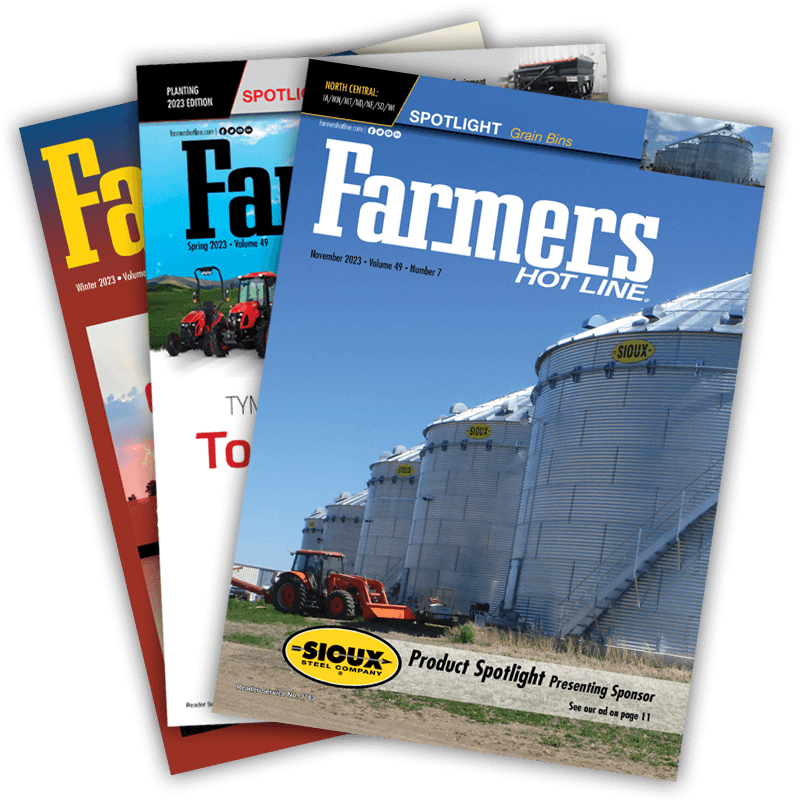Wyoming Rancher Keynote Speaker at British Society of Animal Science
How often does a western U.S. rancher get to speak at a prestigious academic convention in the UK? The British Society of Animal Science (BSAS) is the main academic group that supports animal science in the UK. Their goal is to advance and improve the understanding of all aspects of animal science and ensure that research and knowledge transfer has a practical and beneficial application.
The Foyle Food Group (a family owned-business with five large packing houses in the UK and Ireland, and over 40 years of expertise in beef processing) was one of the sponsors for the 2024 BSAS Convention (April 9-11), and invited Jim Jensen to be the keynote speaker at their sponsored session.
Jim and his wife Jamie (Lucky Seven Angus, near Boulder, Wyoming) were contacted by Andrew Clark, Agricultural Manager of the Foyle Food Group. “He asked if we would come to Belfast, Ireland and talk about our environmentally-friendly beef and Lucky Seven Angus. Spring is a busy time for us, but we looked at each other and said, ‘Hey! We’ll get a free vacation, so let’s do it!” Jim said.
“Wayne Acheson, one of four brothers who own the Foyle Food Group, found out about us and tried for 5 years to try to talk us into doing this. He set everything up, and was with us every step of the way on this trip,” Jim explained.
Jim and Jamie had been creating a feature film called Lucky Seven Angus; The Art of a Cowboy. “The film crew heard about our invitation to Ireland and wanted to do the last episode with ‘Lucky Seven Angus Goes to the World’ so the Foyle Food Group took all of us over there for the event.” Jim, a fifth-generation rancher. He and Jamie have 2,500 cows, raised in harsh, challenging conditions--grazing 38,000 acres, some of it above 10,000 foot elevation. These cattle must be feed-efficient, structurally sound, with desired carcass traits.
“We left on April 6th and they flew us to Edinburg, Scotland. For several days we visited several top Angus herds in Scotland and England and went to Belfast, Ireland to headquarters of the Foyle Food Group. We toured their smallest packing house where they kill and package each animal in less than a minute, then went to their farm and agriculture testing facility for cattle and crops.
“At that event they had me speak to a group that included ag representatives of local banks and top people in the government, agriculture sector, media people, and producers,” Jim says. This included members of the Northern Ireland Aberdeen Angus Breeders Club, Aberdeen Angus Quality Beef (AAQB), and Foyle suppliers. They also met with the Agricultural and Continuous Improvement Managers to gain understanding of how those teams tackle sustainability challenges and use innovation to improve performance while encouraging this within the supply base.
“That night we had supper with one of the biggest players in the entire agriculture department in the UK. The next day the Foyle Food Group sponsored the ‘Sustainable Beef Production through Animal Science’ session at the BSAS Conference in Belfast and we were the featured speaker in our seminar, and we talked to 250 people. All the events we attended were focused around how to feed people and keep sustainability, not just for the environment. My talk emphasized the fact that sustainability means the rancher must be viable and able to make a living. Number two, must create a food supply system for an ever-growing population. Number three, sustainability means we have to consider the environment. If we don’t have the first two, however, and people are starving, no one cares about the environment,” Jim says.
“We talked about the fact that cows are not the problem for the environment—and the fact that on our ranch we have created cows that eat grass, live longer, and healthier. These cattle have a different ‘motor’ in them. Cattle are the solution; we just need to make the engine more efficient,” he says.
“We can help counterbalance the people flying back and forth to Washington on their big jets and all the construction in the cities. They keep increasing the problem on their side, but we can decrease the problem on our side. Then we went into what Lucky Seven Angus has done as a leader in high-elevation cattle that are healthier and live longer. We are the leader in the nation and in the world in feed efficiency and durability—cattle that last longer.”
Trials conducted using GrowSafe have shown that his bulls consume 38.6% less and his heifers can maintain body weight with 54% less feed than industry standards. The genetic goal is cows that are productive for at least 16 years, and any cows that are flushed must be a minimum of 12 years of age, to ensure longevity with proven genetics.
Following the conference, Jim and Jamie also were given a look at beef research in Northern Ireland, and then visited a local farmer and the Gigginstown House stud—talking with Irish Aberdeen Angus breeders and Angus Beef Ireland.
“It is important for the U.S. to pay attention to agricultural sustainability and the importance of animal agriculture. The UK is 10 years ahead of us in terms of pushing ranchers around and making it challenging to keep farming. The environmental focus that views animal agriculture as bad is something we need to get in front of and tell our story, and how we are doing things to fix the problems that so-called environmentalists think are problems—even though they may not be,” he says.
“We need to show them we are doing our job that we’re good people. Agriculture is the only industry that is sustainable and necessary for human existence. I believe that the truth will finally come out, and it will be a great time for the cattle industry and agriculture. We are at a point where we have to fight, and show people that we are good, and I think the public is ready to accept it,” Jim says.
“Even in the UK, farmers and ranchers were saying the environmental movement is putting less pressure on them to get rid of cattle than they were two years ago; the rigid regulations are loosening up a little.”
Maybe the pendulum has swung far enough in the wrong direction and things can move back toward good balance again. “It needs to, because every one of those farmers and ranchers in the UK are at least 65 to 70 years old, just like they are here. There are no young people moving into this industry because there is no money in it.” If there is no economic benefit, there will be no more people going into agriculture.
“People just need to learn about what we are doing to create a product for them to eat, and that it’s important. We need to be sustainable and have ample food supply.” Farmers and ranchers need to be allowed to make a living doing it.
About the Author
Heather Smith Thomas and her husband Lynn have a cattle ranch in Idaho where they
raise beef cattle and a few horses. She has raised and trained horses for 60 years, written
more than 14,000 stories and articles (mostly for livestock and horse publications) and
published 24 books, include Storey’s Guide to Raising Beef Cattle, Storey’s Guide to
raising Horses, Storey’s Guide to Training Horses, The Horse Conformation Handbook,
Care and Management of Horses, Essential Guide to Calving, the Cattle Health
Handbook, and Beyond the Flames—A Family Touched by Fire (telling about her
daughter’s severe burn injuries and survival, and how it affected the family).
She has also written several books about experiences on the ranch (Horse Tales:
True Stories from an Idaho Ranch; Cow Tales: More True Stories from an Idaho Ranch;
and Ranch Tales: Stories of Dogs, Cats and Other Crazy Critters). She is currently
working on a book called Raising Cattle on Your Homestead Farm.


